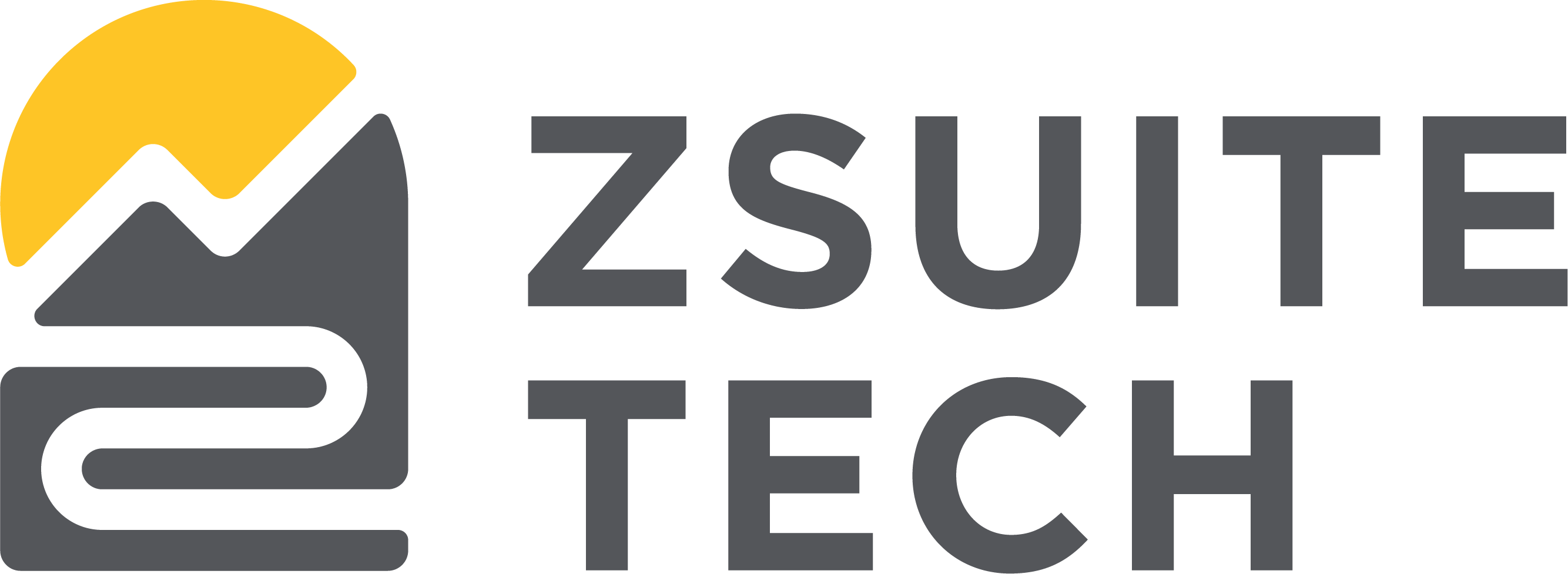How Specialty Escrow Accounts Provide Predictability Amid Volatility
by ZSuite Tech on Nov 20, 2025 4:09:29 PM
Amid unpredictable interest rates, evolving regulations, and rapidly shifting customer expectations, financial institutions face mounting pressure to safeguard their deposit base, making deposit stability not just a priority but a strategic imperative. For many banks and credit unions, the commercial deposit base, once considered a reliable source, is now under pressure.
Vertical-specific fintechs and payment providers are attracting deposits with promises of lower friction, easier access, and higher returns.
Specialty escrow accounts serve as the starting point for this discussion; they’re not just another banking product, but rather the foundation for building long-term, high-value relationships with clients in industries that demand more than ordinary solutions.
The Case for Specialty Escrow Accounts
Specialty escrow accounts, on the other hand, are designed for specific use cases—such as landlord-tenant security deposits, municipality specific fund management, IOLTAs, and 1031 exchange funds. These accounts serve compliance-driven purposes and are often held for longer durations, with more predictable flows.
Here’s why that matters:
- Sticky, Purpose-Driven Balances: Escrow funds are often mandated by regulation or contractual obligation, reducing the likelihood of sudden withdrawals.
- Lower Attrition Risk: These accounts are not yield-driven and are less likely to leave for better rates elsewhere.
- Predictable Lifecycle: Many escrow use cases follow a known lifecycle. For example, 1031 funds have holding period requirements, and construction retainage follows project timelines, offering more forecasting clarity.
- Compliance Necessity: Driven by regulatory guidelines, these accounts aren’t just an option; they’re a necessity. For commercial clients, they’re indispensable; for your institution, they represent a reliable source of deposits you can predict, plan around, and leverage for growth.
The Strategic Value of Specialty Escrow Verticals
Specialty escrow accounts stand apart from ordinary deposits. They’re essential for industries with strict rules and complex requirements, like property management, legal services, municipalities, and 1031 Exchanges. Because these clients are required to use escrow accounts to comply with regulations, financial institutions have a unique opportunity to provide valuable, tailored solutions that competitors often can’t match.
What makes these relationships stand out is their long-term value and stability. These industries rely on escrow accounts as a core part of their business, so they become lasting partners rather than fleeting customers. Because regulations require funds to be held in escrow, these deposits are predictable and dependable. By offering a digital escrow platform built for these complex needs, financial institutions can scale efficiently and serve clients without adding extra manual work. And since few competitors can match this level of specialization, having the right solution in place lets you win—and keep—business that others simply can’t support.
ZEscrow: Making Predictable Deposits Possible with Virtual Account Management
ZSuite Tech’s ZEscrow is specifically designed to meet these specialized escrow needs. From facilitating IOLTA compliance to managing the complexity of 1031 exchange funds, ZEscrow delivers a digital, compliant, and auditable experience, helping your institution grow low-cost, stable deposits while improving operational efficiency.
With ZEscrow, you’re not just capturing balances; you’re creating a relationship rooted in necessity, trust, and long-term value.
- Press (53)
- Commercial banking (16)
- Deposits (14)
- Partnerships (12)
- 1031 Exchanges (9)
- ZEscrow (9)
- Bank tech (8)
- Specialty Deposits (8)
- ZValues (6)
- Property Management (5)
- VAM (4)
- Law Firms (3)
- Liquidity Management (3)
- Municipalities (3)
- Working smart (3)
- Podcast (2)
- Webinar (2)
- Builder, Banker, Hacker, Chief (1)
- FDIC Insurance (1)
- February 2026 (1)
- December 2025 (1)
- November 2025 (1)
- September 2025 (1)
- August 2025 (4)
- July 2025 (1)
- June 2025 (2)
- May 2025 (1)
- March 2025 (1)
- February 2025 (1)
- January 2025 (1)
- December 2024 (1)
- November 2024 (1)
- October 2024 (3)
- September 2024 (2)
- August 2024 (3)
- July 2024 (2)
- June 2024 (3)
- May 2024 (6)
- April 2024 (2)
- March 2024 (5)
- February 2024 (1)
- January 2024 (2)
- December 2023 (1)
- November 2023 (3)
- October 2023 (1)
- September 2023 (1)
- August 2023 (3)
- June 2023 (3)
- May 2023 (1)
- March 2023 (6)
- February 2023 (4)
- January 2023 (4)
- December 2022 (2)
- November 2022 (6)
- October 2022 (1)
- September 2022 (1)
- August 2022 (3)
- June 2022 (1)
- May 2022 (1)
- April 2022 (5)
- March 2022 (3)
- December 2021 (2)
- September 2021 (3)
- July 2021 (2)
- June 2021 (1)
- May 2021 (1)
- April 2021 (4)
- March 2021 (3)
- February 2021 (4)
- January 2021 (2)


